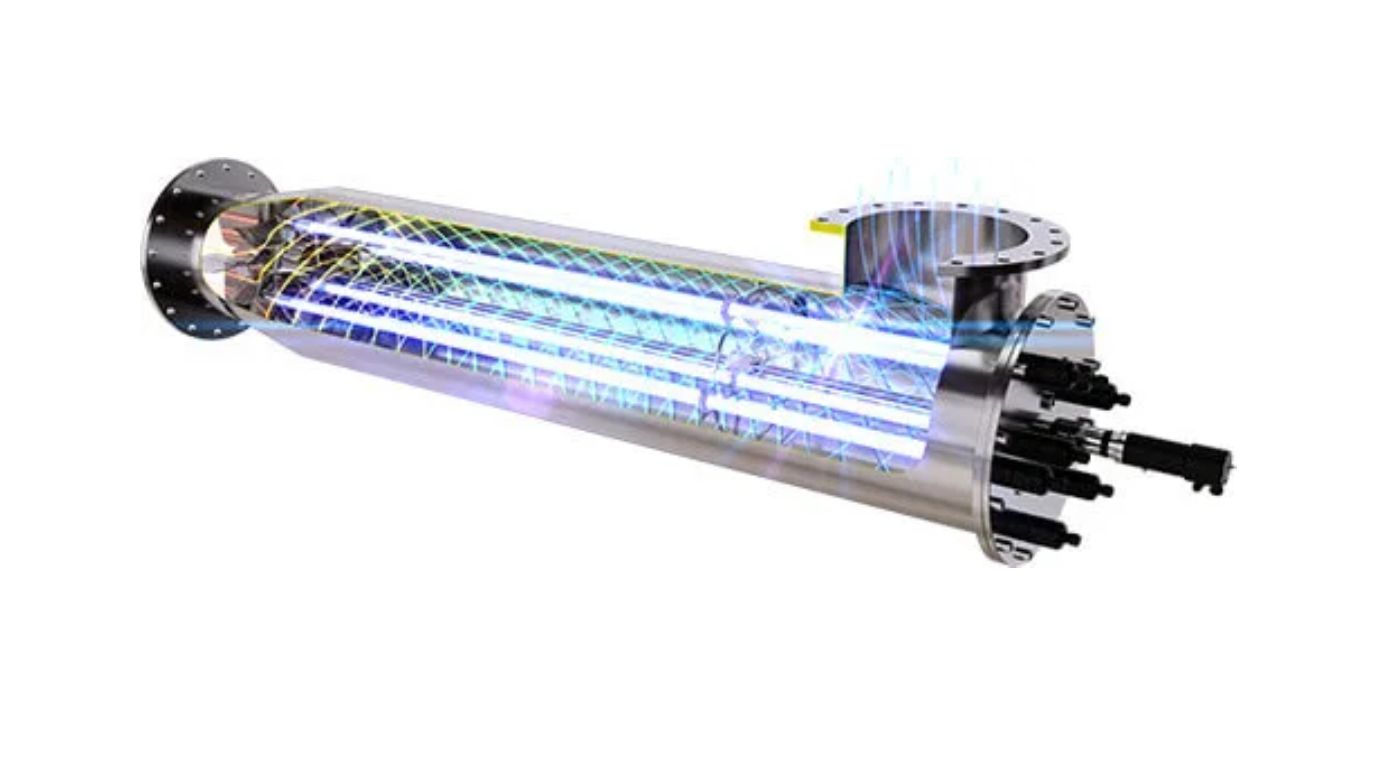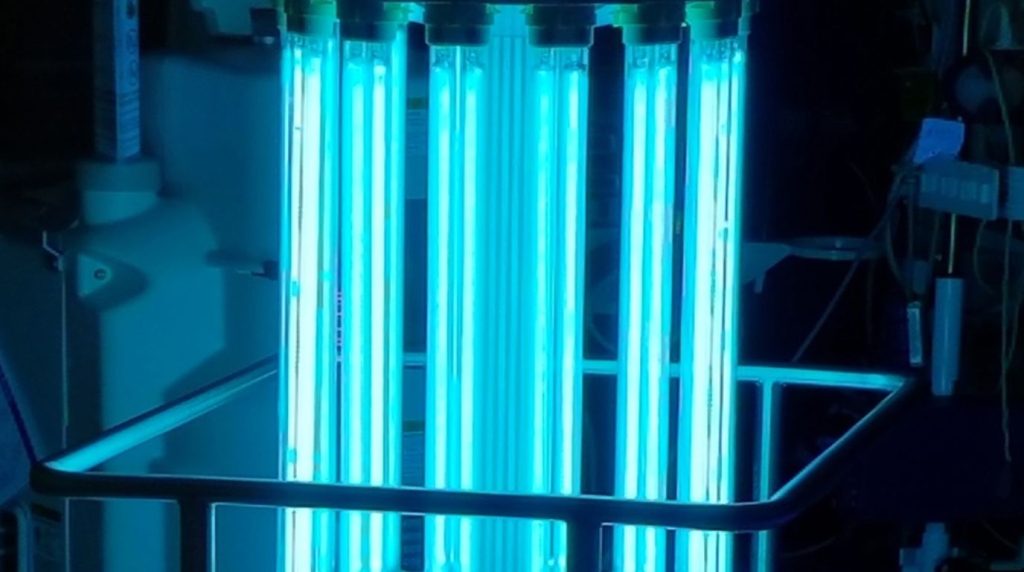UVC disinfection systems have emerged as a highly effective and environmentally friendly method for eliminating harmful microorganisms in water, air, and surfaces. Utilizing ultraviolet light with wavelengths between 200 and 280 nanometers, particularly around 254 nm, UVC radiation disrupts the DNA and RNA of bacteria, viruses, and other pathogens, rendering them inactive and unable to reproduce. This technology has gained significant attention in recent years due to its ability to provide rapid disinfection without the use of harmful chemicals. In water and wastewater treatment, UVC systems offer a chemical-free solution that minimizes the formation of toxic by-products, making them an ideal choice for safe and sustainable sanitation. Despite its many advantages, the effective implementation of UVC disinfection requires careful consideration of system design, exposure time, and safety protocols. This article explores the principles, applications, benefits, and challenges of UVC disinfection systems, highlighting their growing importance in public health and environmental protection.
What is a UVC Disinfection System?
A UVC disinfection system is a technology that uses ultraviolet light in the UVC spectrum (200-280 nm) to inactivate microorganisms such as bacteria, viruses, and protozoa. The system typically consists of UVC lamps or LEDs that emit ultraviolet radiation at a wavelength around 254 nm, which is most effective at damaging the genetic material of pathogens. By disrupting the DNA or RNA, UVC prevents microorganisms from replicating and causing infections. These systems are widely used in various applications, including water and wastewater treatment, air purification, surface sterilization, and healthcare settings. UVC disinfection offers a chemical-free, non-invasive alternative to traditional disinfectants like chlorine, reducing the risk of harmful chemical by-products. Proper design and operation of UVC systems are crucial to ensure sufficient exposure and effective microbial inactivation. Overall, UVC disinfection systems play a vital role in improving public health by providing safe and efficient sterilization solutions.
What are the benefits of using a UVC Disinfection System?
UVC disinfection systems offer numerous advantages that make them a preferred choice in various sterilization applications. One of the main benefits is their ability to effectively inactivate a wide range of pathogens, including bacteria, viruses, and fungi, without the use of harmful chemicals. This chemical-free process reduces the risk of toxic by-products often associated with traditional disinfectants like chlorine. Additionally, UVC systems provide rapid disinfection, often requiring only seconds of exposure to achieve significant microbial reduction. They are also environmentally friendly, energy-efficient, and require minimal maintenance. Another important benefit is the ability to disinfect hard-to-reach areas and surfaces without physical contact. UVC disinfection is versatile and can be applied in water treatment, air purification, healthcare, and food processing industries. Overall, these benefits contribute to safer environments, improved public health, and sustainable sanitation solutions.

What is the application of a UVC Disinfection System?
UVC disinfection systems are used in a wide range of applications where effective sterilization is essential. One of the most common uses is in water and wastewater treatment, where UVC light is applied to eliminate pathogens without introducing chemicals into the water supply. In healthcare settings, such as hospitals and laboratories, UVC devices are used to disinfect surgical tools, patient rooms, and air systems to prevent the spread of infections. Air purification systems also incorporate UVC technology to reduce airborne bacteria and viruses in homes, offices, and public spaces. Additionally, food and beverage industries use UVC to disinfect surfaces, packaging, and processing equipment to maintain hygiene and safety standards. Even in consumer products, such as toothbrush sanitizers and mobile phone cleaners, UVC technology is now being used. These diverse applications demonstrate the versatility and growing importance of UVC disinfection systems across many industries and daily life.
UVC Disinfection System in Water Treatment
UVC disinfection systems play a critical role in modern water treatment processes by providing a reliable, chemical-free method of microbial inactivation. In drinking water treatment plants, UVC light is used to destroy harmful microorganisms such as E. coli, Giardia, and Cryptosporidium, which can cause serious illnesses if left untreated. The UVC radiation penetrates the cell walls of these pathogens and disrupts their DNA, preventing them from replicating. Unlike chemical disinfectants like chlorine, UVC does not alter the taste, odor, or pH of water, and it does not produce harmful by-products such as trihalomethanes (THMs). In wastewater treatment, UVC systems are often used as a final disinfection step before discharge into natural water bodies, ensuring environmental safety. Compact, energy-efficient, and easy to maintain, UVC systems are increasingly being adopted in both municipal and industrial water treatment facilities as part of sustainable and safe water management strategies.
Conclusion
UVC disinfection systems represent a powerful, efficient, and environmentally responsible approach to sterilization across a variety of applications. By harnessing ultraviolet light in the UVC range, these systems can effectively inactivate a wide spectrum of harmful microorganisms without relying on toxic chemicals. Their use in water and wastewater treatment is especially valuable, providing a safe and rapid method for ensuring clean water without the production of harmful by-products. From healthcare and air purification to food processing and consumer devices, UVC technology continues to expand its presence due to its effectiveness, low maintenance, and minimal environmental impact. While proper system design and safety measures are essential, the advantages of UVC disinfection clearly outweigh its limitations. As concerns over water safety, public health, and hygiene grow worldwide, UVC disinfection systems offer a promising solution for sustainable and effective microbial control in both public and private sectors.
read more: UV Sterilizer

